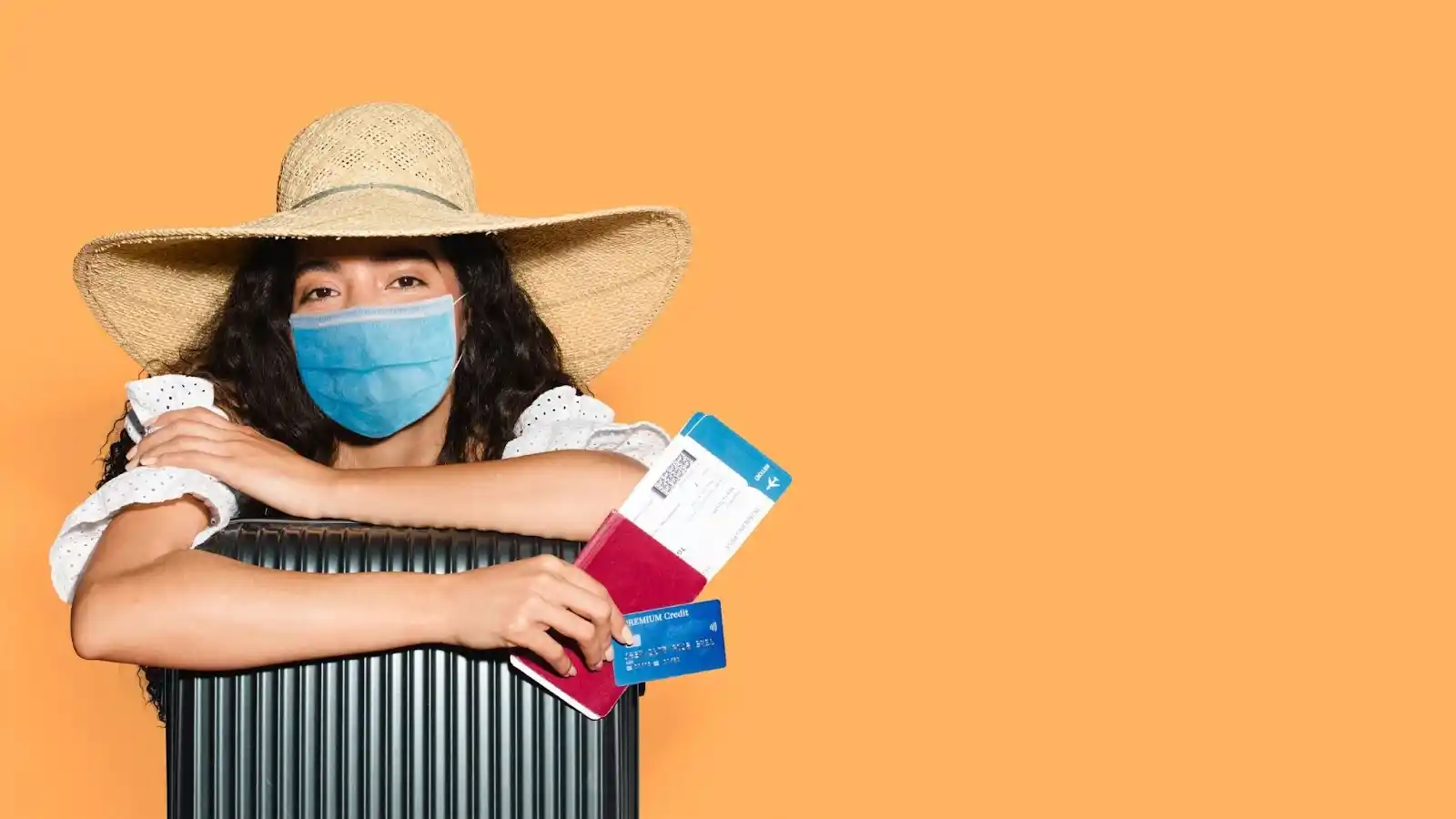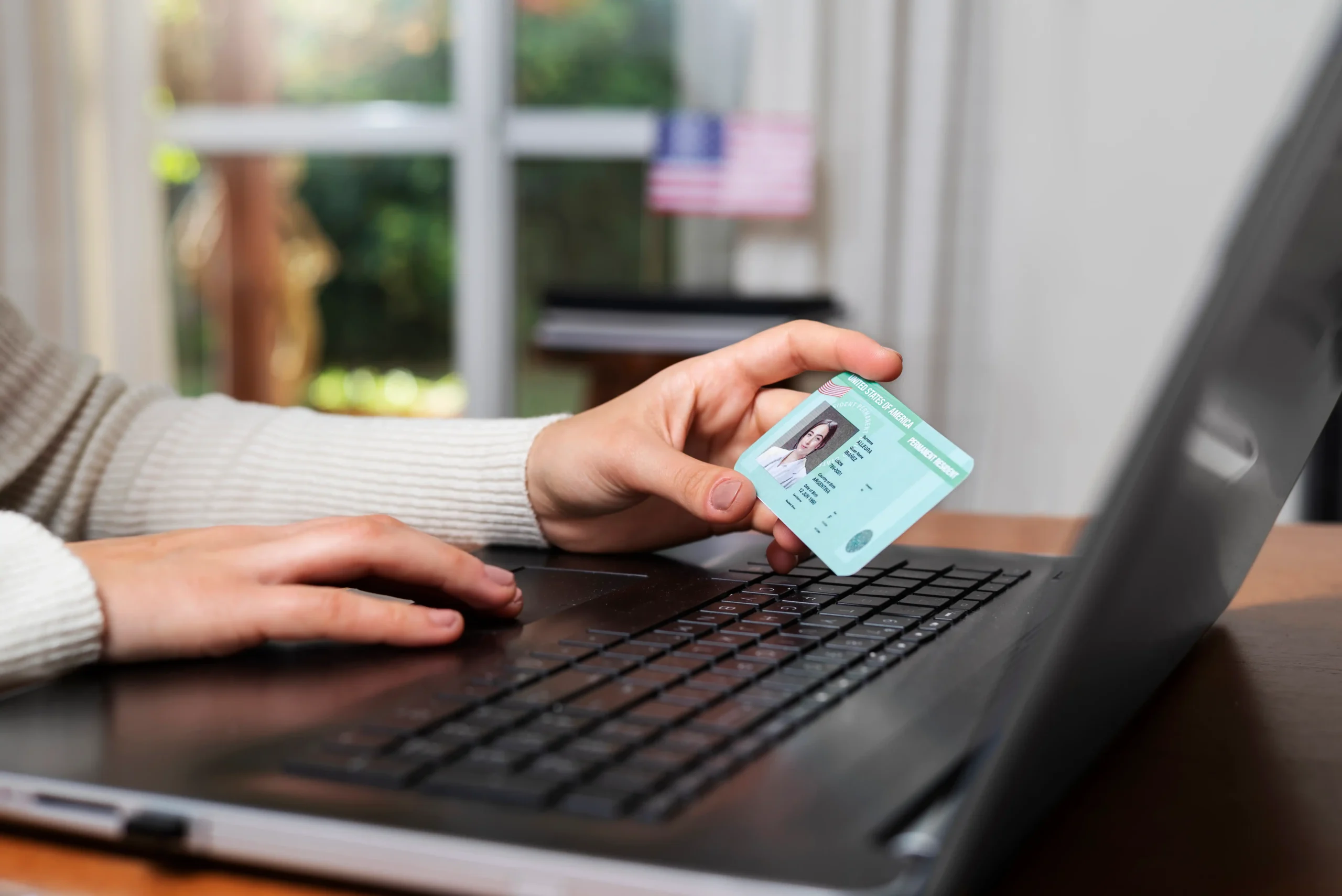Did you ever wonder if that amazing travel deal was too good to be true? Travel agency scams are more common than you think. According to TransUnion’s 2024 Omnichannel Fraud Report, the travel sector has seen an 8% growth, with 2.3% of global transactions flagged as suspicious fraud attacks.
Every holiday season, this fraud rate rises, ruining the plans of many who save throughout the year to enjoy their free time. To help prevent this from happening, this post will explain travel agency frauds, the warning signs, and the steps you should take to protect yourself so you can enjoy your vacation without worries.
Need support after a scam? Join our community today.
What Are Travel Agency Frauds?
Travel agency frauds are scams where people or companies trick travelers into paying for trips or services that are fake, poorly delivered, or never happened. These scams can happen in multiple ways, including the following:
- Fake Travel Agencies or Websites: Scammers create fraudulent travel agencies or websites advertising unrealistically cheap vacation packages. For example, a traveler might book a $500 luxury cruise, only to discover upon arrival that the agency never booked the trip.
- Fraudulent Accommodation Listings: Online platforms display fake vacation rental ads. Travelers pay upfront, only to find out the property doesn’t exist or isn’t available for rent.
- Phishing Scams: Emails or messages appear to come from legitimate travel companies, requesting personal details or payment information. This often results in data theft or financial loss.

What Are the Signs of a Fraudulent Travel Agency?
There are some warning signs you should watch for between legitimate and fake travel agencies. The goal is to avoid becoming part of the growing number of people affected by travel scams, which have surged by 500% to 900% globally in the past 18 months, according to Booking.
To help you identify travel scams, here are 5 warning signs to watch for:
1. Too-Good-to-Be-True Deals
Be cautious of offers that seem surprisingly affordable or promise luxury services at minimal costs. For example, a package offering a weeklong 5-star resort for $100 is likely a scam. Scammers often hook victims with attractive deals that are not reasonable compared to standard market prices.
2. Lack of Verifiable Information
Legitimate travel agencies offer clear contact information, including a physical address and customer service numbers. If an agency lacks these details, or they are difficult to verify, it’s a big warning sign.
3. Suspicious Payment Requests
Be suspicious of agencies that insist on full upfront payments, especially through non-secure methods like wire transfers or prepaid debit cards. These payment methods are difficult to trace or recover, making them popular with scammers.
4. Limited or Fake Online Presence
A trustworthy agency has a professional website, active social media profiles, and genuine customer interactions. If an agency has a poorly designed website, no reviews, or generic positive feedback, continue with caution.
5. Pressuring Tactics
Scammers often create a false sense of urgency, pressing you to act immediately with phrases like “limited-time offer” or “last chance.” Legitimate businesses give you time to make informed decisions.

How to Prevent Travel Agency Fraud?
If you have already detected all the warning signs of travel agency fraud, it is important to keep in mind the steps explained below. These fraud detection techniques will help protect you from becoming a victim of this type of fraud.
1. Review All Options Carefully
Compare offers from different travel agencies and review their terms and conditions. For example, if an agency offers a luxury cruise at half the usual price, investigate customer reviews and verify directly with the cruise operator. Researching typical costs for your destination helps identify deals that may indicate scams or unexpected issues.
2. Avoid Sharing Sensitive Information
Only share personal or financial details after verifying the agency’s legitimacy. Be extra cautious if you receive unexpected requests for sensitive information, such as bank details or passport numbers. Legitimate agencies typically don’t require this upfront.
3. Read the Terms and Conditions
Take time to review terms and conditions, especially cancellation and refund policies. For example, hidden fees or confusing clauses may indicate a scam, while legitimate agencies have transparent and clarified terms.
4. Use Online Tools
Use tools such as Who.is to find information about the website’s creator and its registration details. Explore the agency’s activity on social media to verify their interactions and activity. Look for customer engagement as a sign of reliability.
Learn how to identify and avoid merchant services scam calls and stay safe from travel-related fraud.

Have questions about dealing with scams? Contact us for support.
How to Verify the Legitimacy of a Travel Agency?
Verifying the legitimacy of a travel agency is an important step everyone should take before buying a tour or travel package, especially if the offer seems too good to be true. This way, we can make sure we are dealing with the right agency and that our money is safe.
1. Check Official Certifications
Look for affiliations with recognized organizations such as the International Air Transport Association (IATA) or the American Society of Travel Advisors (ASTA). For example, legitimate agencies often display these certifications on their websites, which you can cross-check on the official directories of these organizations.
2. Research Reviews and Testimonials
Consult trusted review platforms such as the Better Business Bureau (BBB) to read about other travelers’ experiences. Be cautious of reviews that lack specifics or seem overwhelmingly positive, as they may be fabricated. For example, look for reviews mentioning details like trip itineraries or customer service interactions.
3. Verify Contact Information
Cross-check the agency’s address and phone number using online maps or directories. For example, if the agency lists a physical location, use Google Maps to confirm its existence and check for reviews tied to that address.
4. Ask for References
Don’t be afraid to ask for references or contact information for previous clients. Speaking directly to former customers can provide valuable insight into the agency’s reliability and service quality. For example, a legitimate agency will readily share this information upon request.
Explore how credit card fraud detection techniques can protect your transactions.
Discover credit card fraud detection techniques to protect your transactions when booking trips online.

What to Do If You Find a Fraudulent Travel Agency?
If you believe you’ve found a fraudulent travel agency, take immediate action to protect yourself and others. Here’s what you should do:
- Report the Scam to the FTC: Visit the Federal Trade Commission (FTC) website to file a formal complaint. Provide as much information as possible, such as the agency’s name, website, and contact details, along with evidence of the fraudulent activity.
- Alert Other Travelers: Share your experience on trusted review platforms such as the Better Business Bureau (BBB) or Google Reviews. For example, leaving a detailed review about the scam can warn others and prevent further incidents.
- Contact Your Bank or Credit Card Provider: If you’ve already made payments, notify your bank or credit card company immediately. They can assist with initiating a chargeback or investigating the fraudulent transaction.
- Spread Awareness: Use social media or community groups to share your story and educate others on how to avoid similar scams. A single post can make a big difference in preventing travel fraud.
Stay Safe from Travel Agency Frauds with CDN’s Support
Now that you know how travel agency frauds work, the next step is to stay informed, recognize all the signs mentioned here, and protect yourself while planning your dream trip. Remember, being prepared is one of the most effective ways to guarantee that your travel plans are safe and stress-free.
At Cryptoscam Defense Network, we understand how difficult it is for many people to save, plan, and anticipate a trip, only to have it end up being a scam, leading to financial loss. That’s why we are committed to raising awareness about fraud and providing a supportive community for anyone affected.
We Want to Hear From You!
Fraud recovery is hard, but you don’t have to do it alone. Our community is here to help you share, learn, and protect yourself from future frauds.
Why Join Us?
- Community support: Share your experiences with people who understand.
- Useful resources: Learn from our tools and guides to prevent fraud.
- Safe space: A welcoming place to share your story and receive support.
Find the help you need. Join our Facebook group or contact us directly.
Be a part of the change. Your story matters.
Frequently Asked Questions (FAQs) about Travel Agency Frauds
What Should I Do If I Think I’ve Fallen for a Travel Agency Scam?
If you suspect you’ve been scammed, take these immediate steps to reduce your financial loss and report the fraud:
- Contact Your Bank or Credit Card Company: Notify them about the fraudulent transaction to block further charges and initiate a chargeback if applicable.
- Report the Scam: File a complaint with the Federal Trade Commission (FTC) through their website. Providing details like the agency’s name, website, and evidence of the scam helps authorities track fraudulent activities.
What is the Safest Way to Make Payments When Booking a Trip?
Using a credit card is the safest payment method for booking trips. Credit cards offer fraud protection, allowing you to dispute charges if services are not delivered as promised or turn out to be scams. Avoid payment methods like wire transfers or prepaid debit cards, as these are harder to trace and recover.
Can I Recover Money If I’ve Been Scammed by a Travel Agency?
Recovering money depends on your payment method and how quickly you act. If you used a credit card, you can dispute the charge by contacting your bank and requesting a chargeback. Always save proof of the transaction and any communication with the agency to support your case.
Is it Safe to Book Trips from Travel Agencies I Find Through Social Media?
While social media can be a convenient way to discover travel agencies, it’s especially important to verify their legitimacy. Always check for credentials, certifications, and reviews on trusted platforms. Signs of a reliable agency include a professional website, active customer interactions, and clear contact information.
Photos via Freepik.







